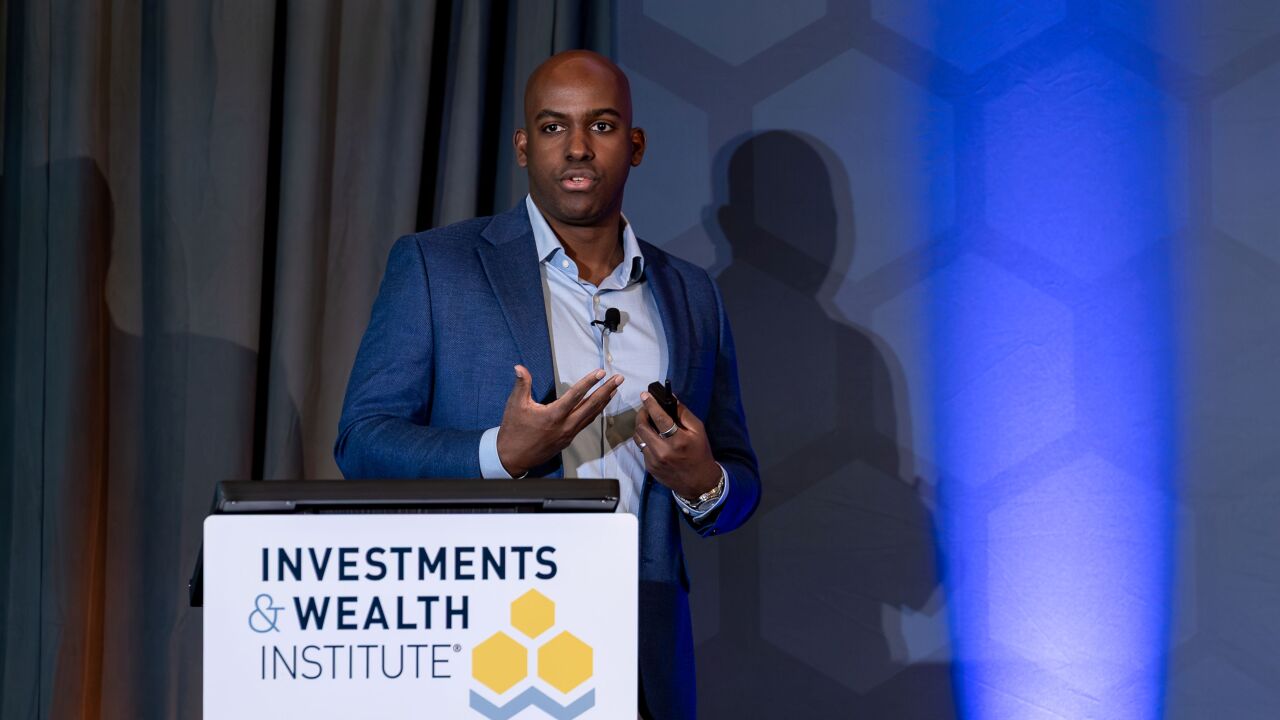PALM DESERT, CALIF.-As investors have fled equity funds, the industry's move into alternative investments has become one of the biggest concerns of directors of the board.
"Inflation-protected, dynamic allocation, tactical funds-all are loaded up with derivatives and incredibly complicated instruments," noted Gary Moody, an independent director at AllianceBernstein, speaking at the "Board Perspectives" panel at the Investment Company Institute's Tax and Accounting Conference here last week.
"And who is on the front line but the auditors and the boards?" asked Moody, who called the potential implosion of alternative products "the perfect storm."
The best way for directors to wrap their brains around derivatives and other complex securities-and to ensure that funds' daily net asset valuations are accurate-is to have sound valuation and pricing procedures, said Glenn O'Flaherty, an independent director at Aquila Investment Management.
"You need good data, policies, procedures, controls and reviews to get there," O'Flaherty said.
But remember, he cautioned, "The NAV is theoretical at best. All of you involved in fair value and NAVs, be you a fund accountant, treasurer or vendor-you all go through great pains each day to come up with an accurate NAV. You go through all these machinations down to one-one hundredth of a cent. But at the end of the day, it is all theoretical because five minutes later, all of those prices and exchange rates have changed. At best, it is just a momentary snapshot."
Thus, determining an accurate price should not be the end goal, O'Flaherty said. Rather, boards of directors should ensure that the funds they oversee have the right pricing and valuation processes in place, and that they are continuously updated.
"If you do that, then you have the basis to lead to fair valuation and security assessment," he said.
Risk management has become another key issue of fund boards, Moody said. Naturally, risk management includes oversight of investments and compliance with legal and regulatory rules, he said. But it also should extend to operations and distribution, particularly in light of the more esoteric products investment advisors are creating, he said.
"If the manager opens up an alternative product with derivatives, the folks in operations and accounting might not have the experience or the technological tools to deal with them, so they might have to do manual work on Excel spreadsheets," Moody noted. While the board is not responsible for the products, it is responsible for risk management processes, he said.
Problems might also arise from the fact that less than half of advisors have dedicated chief risk officers, Moody added. Sixty-two percent of funds rely on their chief compliance offer to act as their chief risk officer, according to one industry survey. "If the advisor enters into a new, complicated product, the boards have to question whether the CCO can effectively manage that product."
These central issues-complex products, accurate pricing and security assessment-have made audit committees more important than ever, speakers agreed.
All independent directors and at least one financial expert typically sit on the audit committee, said Ted Gallivan, director of fund administration at BlackRock. The audit committee's main areas of focus include:
* Ensuring the integrity of the investment management company's financial statements.
* Oversight of tax reporting and related issues.
* Checking the qualifications and independence of the accounting and auditing firms.
* Valuation and effectiveness of the company's internal control over financial reporting and NAV determinations.
* Monitoring the vendors and relationships that impact the firm's financial statements.
* Compliance with legal and regulatory requirements.
* Understanding how management is preparing for regulatory changes, most notably Dodd-Frank and International Financial Reporting Standards.
* Risk management and complex securities.
"Auditors used to have a simple mandate," O'Flaherty said. "Now they have a wide range of responsibilities that include risk management, compliance, vendor oversight and distribution. As such, they have many more touch points to the organization-not just the CFO, but also the CCO, head of IT and head of distribution." Thus, it is key for the audit committee to have frequent meetings with management.
While 62% of fund boards of directors are still meeting on a quarterly basis, according to a recent ICI study, given all of the responsibilities they now face, that may not be frequently enough, maintained Donald Burke, an independent director at Goldman Sachs Asset Management.
"If a board works with a medium or larger complex, I would maintain that you need to meet more frequently," Burke said. Some boards meet six times a year, or hold separate meetings to review SEC Rule 15-C on investment advisor contract renewals, Burke said.
In line with this, some fund boards have created as many as 15 sub-committees, he said.
"Our industry is getting much more complex. The issues are becoming much more difficult," Burke said. "I am a big proponent of multiple committees. If there is a compliance committee, for instance, you know the board is taking the time to focus solely on compliance and it doesn't get lost."





